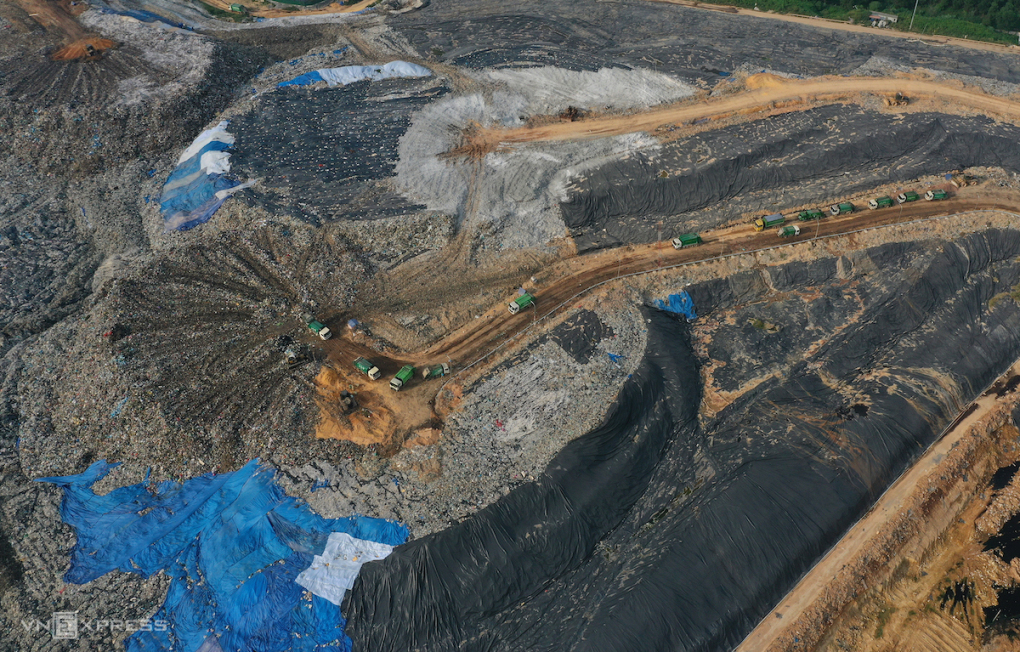
Households who do not classify their garbage are fined up to one million dong
(Vnexpress) – Households and individuals not classified; or failing to use packages containing domestic solid waste as prescribed, they will be fined from 0.5 to one million dong.
According to Decree 45/2002, effective from August 25, on sanctioning administrative violations in the field of environmental protection, investment project owners, owners, management boards of urban areas, apartment buildings, Office buildings will be fined from VND 200 to 250 million if they fail to arrange equipment, means and locations for sorting at source, collecting and storing daily-life solid waste.
A fine ranging from VND 250 to 300 million shall be applied to acts of failing to organize the collection of waste from households and individuals; failing to arrange suitable daily-life solid waste collection points within the investment project’s premises.
Specific regulations on waste classification will be issued by the People’s Committees of the provinces depending on the actual situation of each locality.

Unsorted waste is collected in Hanoi. Photo: Ngoc Thanh
Mr. Hoang Duong Tung, former Deputy Director of the Environment Administration (Ministry of Natural Resources and Environment), said that it is reasonable to issue sanctions to punish people who do not classify garbage. However, localities currently do not have specific regulations as required by the Law on Environmental Protection 2020, so there is no basis for fines for violations after August 25.
Experiences from other countries as well as a number of pilots in Hanoi in the past have shown that waste sorting will help reduce 30% of the total amount of waste generated, reducing the pressure on collection and transportation of waste for treatment. This will also increase the amount of trash that is recycled instead of landfilling, or letting it end up in the ocean.
Mr. Tung said that the facilities and human resources in Vietnam currently do not guarantee the synchronous sorting of waste at source from people, collection, gathering to transportation and treatment. The proof is that the pilot phases in Hanoi and Ho Chi Minh City were unsuccessful. “In the pilot places, it can be seen that people are very excited to sort, but the collection unit has not prepared vehicles to carry each appropriate type of garbage, in the end, how much of the waste is classified and buried together,” said Tung. speak.
In order for the regulation to come to life, Mr. Tung said that in the coming time, it is necessary to organize training for people as well as the collection team so that they understand the rules, how to properly classify and collect garbage.

Nam Son landfill site, Hanoi is overloaded. Photo: Ngoc Thanh
The National Environmental Status Report 2019 of the Ministry of Natural Resources and Environment said that every day, the whole country generates nearly 65,000 tons of domestic solid waste, of which about 9,500 tons in Ho Chi Minh City, more than 6,500 tons in Hanoi.
In 2007, Hanoi piloted waste collection and classification at source in Phan Chu Trinh ward, Hoan Kiem district. The Ministry of Natural Resources and Environment assessed that the project initially introduced the concept of garbage classification into schools and expanded to wards. However, after the project ends, the classification is not maintained.
Some other localities have piloted waste separation at source but failed or were not maintained, including: Ho Chi Minh City, Da Nang, Can Tho in 2017, Bac Ninh 2014, Hung Yen in 2012, Lao Cai 2016.
